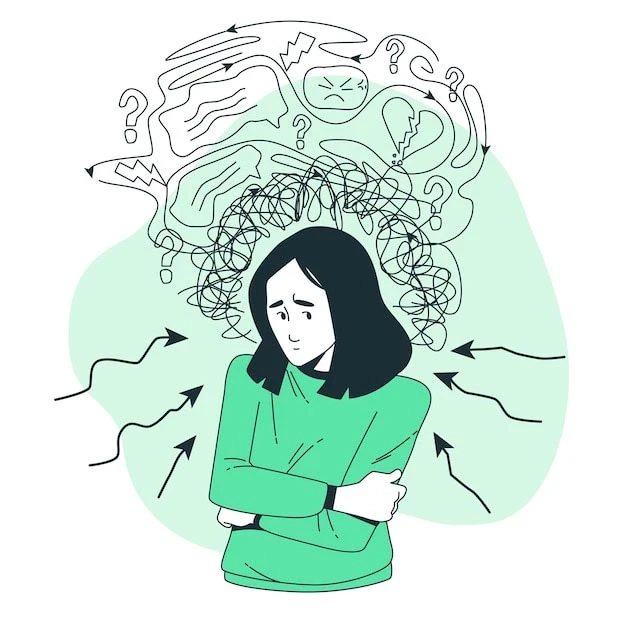Summary
Anxiety is a common problem impacting millions of people globally in today\'s fast-paced environment. Many people find it difficult to deal with the overwhelming sensations of stress and anxiety, whether it\'s because of professional obligations, personal issues, or the continual barrage of information in the digital era. But even in the midst of all of this commotion, there is a road map for relaxation—a route that guides people toward serenity, calm, and eventually, a feeling of grace when it comes to handling their anxiety.
Understanding Anxiety
It\'s important to comprehend anxiety and its symptoms before diving into relaxation techniques. Stress naturally causes anxiety, which is characterized by feelings of concern, fear, and unease. While occasional anxiety is acceptable, persistent or excessive worry can negatively affect one\'s quality of life and result in a number of physical and mental health problems.
Understanding anxiety\'s warning signs and symptoms is essential for managing it. These may include:
Constant anxiety
Anxiety or a tense feeling
unable to focus
Intolerance
Muscle tenseness
disturbances in sleep
When people are aware of their anxiety symptoms, they can start putting effective management and relief measures into practice.
The Guide to Unwinding
Mindfulness and Meditation
Practices like mindfulness and meditation are effective ways to reduce anxiety and quiet the mind. People can develop resilience and inner serenity by paying attention to the here and now and objectively observing their thoughts and feelings. Techniques to assist calm the mind and encourage relaxation include guided meditation, body scans, and deep breathing exercises.
Including mindful eating, walking, or even taking a shower in your daily routine will help you become more aware of and appreciative of life\'s little joys. Furthermore, studies have demonstrated the efficacy of mindfulness-based therapies in the treatment of anxiety disorders, such as Mindfulness-Based Stress Reduction (MBSR) and Mindfulness-Based Cognitive Therapy (MBCT).
Exercise
Frequent exercise is essential for anxiety management in addition to being good for one\'s physical health. Physical activity lowers the synthesis of stress chemicals like cortisol and produces endorphins, the body\'s natural mood enhancers. Finding a fun way to exercise, whether it\'s yoga, running, or a leisurely stroll through the outdoors, can greatly reduce symptoms of anxiety.
Including movement in everyday activities, like using the stairs rather than the elevator or setting aside time for regular exercise, can increase vitality, improve the quality of sleep, and improve general wellbeing. Additionally, taking part in sports or group fitness classes can offer social support and a sense of community, both of which are crucial for fending off the feelings of loneliness and isolation that are frequently linked to anxiety.
Selecting a Healthier Way of Living
Sustaining a healthy lifestyle is essential for reducing anxiety and encouraging rest. This involves making sure you get enough sleep, eating a healthy, balanced diet, and avoiding stimulants like alcohol and caffeine, which can make anxiety symptoms worse.
A regular sleep schedule and a peaceful sleeping environment can greatly reduce anxiety levels because getting adequate sleep is essential for both emotional and cognitive health. In a similar vein, eating a diet high in fruits, vegetables, whole grains, and lean meats supplies vital nutrients that promote mental health, lower inflammation, and enhance emotional wellbeing in general.
Managing stress and anxiety also requires engaging in self-care activities, such as hobbies, relaxation, and quality time with loved ones. Recharging and building resilience in the face of life\'s obstacles can be achieved by partaking in joyful and fulfilling activities.
Cognitive-Behavioral Approaches
Evidence-based cognitive-behavioral methods assist people in recognizing and combating negative thought patterns linked to anxiety. Rethinking illogical ideas and implementing more flexible coping strategies help people effectively manage their anxiety and reclaim control over their life.
Cognitive-behavioral methods include, for example:
Restructuring cognition:
recognizing and combating harmful thought patterns, such as black-and-white or catastrophizing thinking, and substituting more realistic and balanced ideas in their place.
Activation of Behavior:
doing enjoyable and fulfilling things to combat the depressive and lethargic sensations brought on by anxiety.
Exposure Counseling:
In order to desensitize anxiety reactions and boost confidence, one should gradually expose themselves to triggers or dreaded events in a safe and encouraging setting.
Looking for Expert Assistance
Self-help techniques are helpful for mild to moderate anxiety, but for those with severe or chronic problems, getting professional help is necessary. Therapists, counselors, and psychiatrists are examples of mental health specialists who can create individualized treatment plans based on the requirements of each patient.
Depending on the intensity and kind of anxiety disorder, therapeutic methods including dialectical behavior therapy (DBT), cognitive-behavioral therapy (CBT), or medication management may be suggested. Furthermore, peer-led programs and support groups provide helpful tools and a sense of community for people facing comparable difficulties.
To sum up
It takes perseverance, resilience, and self-compassion to navigate anxiety with grace. Through the integration of mindfulness practices, consistent physical activity, healthy lifestyle choices, application of cognitive-behavioral techniques, and seeking professional assistance when necessary, individuals can cultivate efficacious strategies for anxiety management and achieving inner peace.
The road map to relaxation ultimately consists of accepting the current moment, developing inner resilience, and respecting one\'s path to mental health. People who are committed and persistent can overcome anxiety\'s



